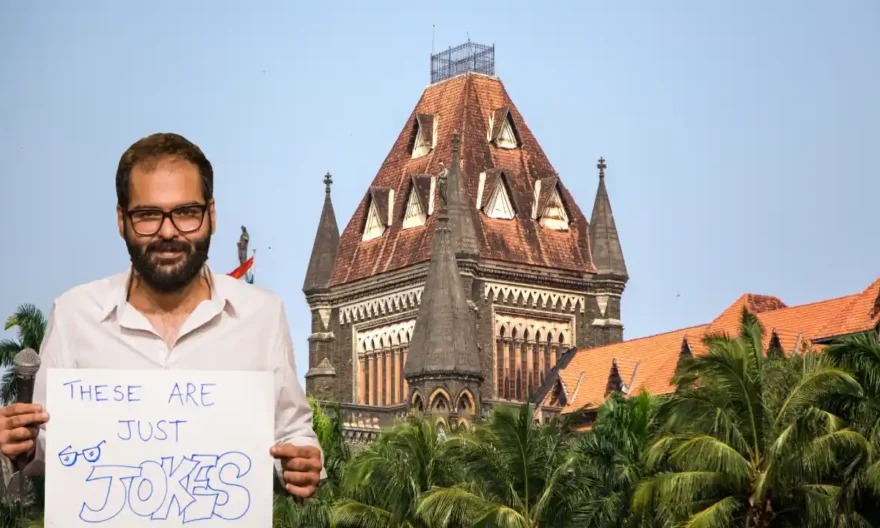
The Bombay High Court observed on Monday that the petition filed by stand-up comedian Kunal Kamra challenging the new Information Technology Rules, 2021, lacks the necessary safeguards.
The challenge is based on freedom of speech and expression under Article 19(1)(a), according to a division bench comprised of Justice GS Patel and Justice Neela Gokhale, and thus the petitioner’s locus will not be examined.
“We are not interested in challenge to locus. In any Article 19 case, locus in immaterial; we are not going to shoot the messenger,” the bench stated.
Relevantly, the Court expressed a preliminary opinion that the rules do not appear to protect legitimate government criticism such as parody and satire.
“You are not affecting parody, satire, that is what your affidavit says, that is not what your rules say. There is no protection. That we will have to see,“ Justice Patel remarked.
The Court also said that the argument that the challenge is pre-mature is also incorrect.
Appearing for the Central government, Additional Solicitor General Anil Singh and Advocate DP Singh stated that the notification has not been published yet.
“The notification has not been notified. Once it is done, they can move at any time. They can move at any time, even during vacation,” ASG Singh stated.
“The question being premature is also wrong, because it is notified,” the division bench stated.
The case was then scheduled for further consideration on April 26, 2023.
The amendments, specifically Rule 3, provide that the Central Government’s Ministry of Electronics and Information Technology may notify a fact-checking body, which is empowered to identify and tag what it considers false or fake online news pertaining to any Central Government activity.
The telecom service providers and social media intermediaries will then be required to take action against such content, or risk losing the safe harbor protection provided by Section 79 of the Information Technology Act.
Kamra moved the Court to overturn the revised Rule 3(1)(b)(v). He sought a declaration that Rule 3(i)(II)(A), (C) of the Information Technology (Intermediary Guidelines and Digital Media Ethics Code) Amendment Rules, 2023 is in violation of Section 79 of the Information Technology Act, as well as Articles 14 and 19(1)(a), (g) of the Constitution.
According to the affidavit filed with the Ministry of Electronics and Information Technology (MeitY), false information has the effect of undermining public trust in democratic institutions and casting doubt on the intentions of the elected government.
In its affidavit opposing the petition, the Central government claimed that false and misleading information could negatively affect electoral democracy.




